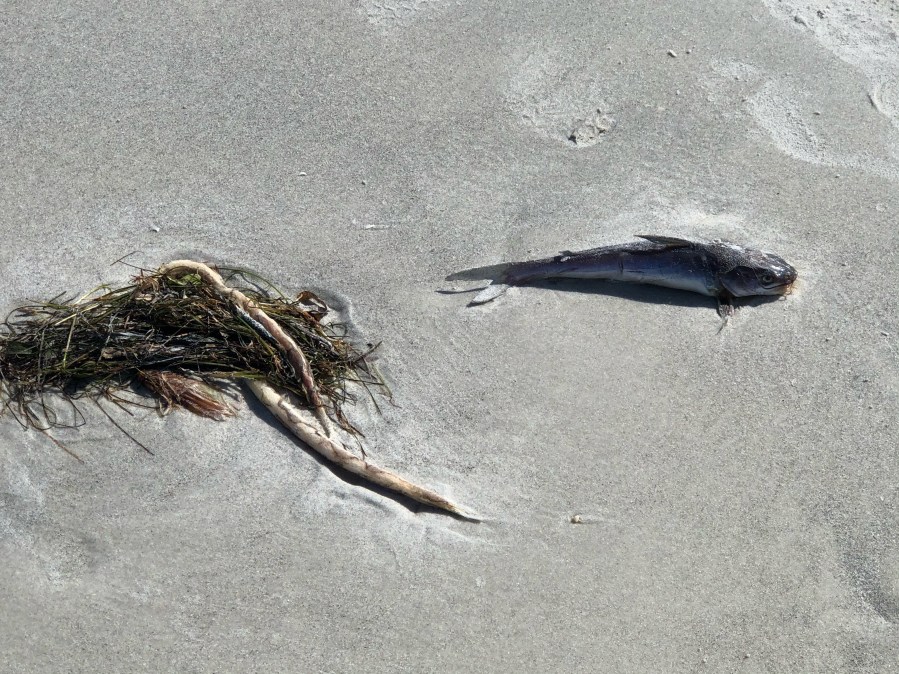REDINGTON SHORES, Fla. (WFLA) – As summer winds down, red tide persists along Florida’s Gulf Coast in Pinellas County, but beachgoers told 8 On Your Side the situation on Labor Day was much better than around the Fourth of July.
“This is the best it’s been all summer right now,” longtime Redington Shores resident Bob Martin said.
Heading into the holiday weekend, the Florida Fish and Wildlife Conservation Commission still detected medium levels of red tide at several popular beaches in Pinellas County.
“In the intercoastal a couple weeks ago, there was fish all over the place,” Martin said.
On Monday afternoon, 8 On Your Side spotted a few dead fish that washed ashore at Redington Shores beach.

“I kind of stay away from the beach honestly during the red tide if there’s fish out there,” Sean Biglin said. “I don’t want to walk around that.”
Throughout the summer, Biglin said customers coming from the beach to Candy Kitchen could feel the effects of red tide.
“A lot of people that are coming down for vacation there always say this red tide is affecting me, I’m coughing all the time,” he said.
For regular beachgoer Gavin Tuttle, the foul smell earlier this summer was unbearable.
“In some areas, you had to run away,” Tuttle said, “like you just wanted to get out of there cause it’s like cafeteria bathroom.”
He said the smell was much less noticeable while skimboarding with his cousin Monday afternoon.
“I don’t smell it here,” he said near the beach parking lot. “You get closer to the water you can smell it a little bit in some areas, but overall I’d say it’s better compared to early July.”
Martin has lived in Redington Shores for 30 years. He still remembers the last bad red tide outbreak.
“It was a lot worse in ’18,” he said. “You couldn’t go fishing months after that.”
Martin said he is hopeful the seafood industry that took a hit this summer will be able to bounce back soon.
“Fish is coming back now because I see a lot of fishermen out there,” Martin said. “Redfish are running right now, mangrove snappers.”
